
CORRECTION: We previously misstated the number of Arizonans who use the Parents as Paid Caregivers program. The Division of Developmental Disabilities serves about 60,000 Arizonans of all ages, and 3,000 use the program.
The biggest fight between Arizona’s Democratic governor and Republican lawmakers this year has nothing to do with the border or abortion.
It's about whether to fund a program that helps parents take care of children with disabilities.
Both sides have said the program is necessary. Yet a solution still seems miles away.
The Parents as Paid Caregivers program, or PPCG, will run out of funding this month unless the Legislature approves a $122 million infusion. Gov. Katie Hobbs asked for the money in January.
Democrats have brought parental caregivers to the Capitol to share stories of how they rely on state funding to pay for the specialized services their kids require. Disabilities like Down syndrome, cerebral palsy and autism require continuous care.
But Republicans have shut down an attempt for a “clean bill” that simply covers the shortfall with General Fund dollars. On Monday, Republicans announced their solution to fund the Division of Developmental Disabilities, which runs the PPCG program, through the end of June by siphoning money from other programs.
Democrats said the bill was so loaded up with problematic provisions that it's not a serious proposal.
The stakes, however, are very serious. Thousands of Arizonans depend on the program to provide specialized care to kids, and a sudden cessation of the funding would upend many families’ long-established caretaking plans. Dozens of program participants have attended hearings and press conferences at the Capitol to demand a continuation.
The proposal would fund caregivers’ subsidies by taking money from various other programs, including:
$74 million from the Prescription Drug Rebate Fund, which the state’s Medicaid agency collects through rebates from drug manufacturers and interest on late payments for those rebates.
$38 million from the Housing Trust Fund that pays for homeless shelters, transitional housing, eviction prevention, rapid rehousing and other housing services.
$10 million from the Arizona Commerce Authority Competes Fund which gives out grants to attract businesses to the state.
The main issue isn’t the way Republicans want to fund the shortfall, however. It’s the series of policy reforms baked into the proposal that would not only reduce the PPCG program, but also give lawmakers powers currently reserved for the governor.
To release the funding, Republicans want the governor to sign off on a list of required policy reforms, including:
Making every state agency reports how it uses and plans to use federal funds.
Requiring legislative approval for all Medicaid waiver submissions.
Reducing the number of hours parents can be paid for from 40 to 20 hours a week, starting in October.
Requiring legislative approval for the PPCG program to keep operating after it is set to expire in September 2027.
All those parameters to keep the PPCG program running come from Rep. David Livingston’s HB2945, which the House “will act swiftly on,” per a news release from House Republicans.
Assistant Minority Leader Rep. Nancy Gutierrez said the plan is a nonstarter for Democrats. While Republicans say limiting the programs’ payouts to 20 hours a week reduces the state’s expenses, Gutierrez says that defies the purpose of the program.
“These are families who, over COVID, quit their jobs to be their child's full-time caregiver, because no one was able to do it,” she said. “We already know there's a (caretaker) shortage, so it's like, well, now your child, who really does require this, doesn't get it.”
Democrats call the provisions “poison pills.”
Not familiar with the term? Our art intern, ChatGPT, can help.
Are you more of a metaphor person than a pictographic learner?
Maybe this one will do the trick.
How did we get here?
During the onset of COVID-19, Arizona’s Medicaid agency started paying parents to take care of their children with disabilities.
Congregate care facilities and caretakers going in and out of homes weren’t ideal in the middle of a public health emergency.
But programs funded through federal COVID relief dollars, like the PPCG program, aren’t always sustainable. Local governments across the country are grappling with what to cut and maintain as the pandemic-era money dries up.
The PPCG program proved invaluable in providing tailored at-home care. Currently, about 3,000 Arizonans use it to take care of their dependent children. Last year, the state Medicaid agency got federal permission to keep it running through at least 2027.
But that also meant the state had to start funding one-third of the program’s cost. Last year, Hobbs’ start-of-the-year budget requested $4 million for those expenses, but the cost increased to $57 million by October. Medicaid payouts increased, and more people used the program than anticipated.
Republicans have used the ordeal as fodder to roast the Democratic governor, who is up for reelection in 2026.
House Speaker Steve Montenegro announced a new “Executive Budget Mismanagement Committee” at a press conference last month where he accused Hobbs of “financial malfeasance” and lumped the disability program in with other funding shortfalls he blamed on the governor.
About a week later, Hobbs announced a new set of guidelines to rein in the program costs by capping payouts to 40 hours a week per child and increasing the qualifications to participate.
But Republicans want their own guidelines.
Democrats boycotted the first meeting of the new committee. Hobbs told her agency heads not to participate.
Republican Rep. Matt Gress, chair of the committee to denigrate Hobbs’ budgeting skills, expressed his frustration during a floor session later that day.
“We will be the adults in the room to provide a supplemental appropriation, and we will ensure that there are guardrails put in place so that this never happens again,” he said.
Now that Republicans have revealed those guardrails, Gutierrez said Democrats will oppose the bill and put up amendments. But they’ll probably be shut down by the majority party, she acknowledged.
Ultimately, Gutierrez thinks the bill is veto bait for Hobbs. In order to stop Republicans’ attempts to give the Legislature budgetary oversight of state agencies and cut the caretaker's program payouts in half, the governor would also be vetoing the means to let the program continue.
“I think it's gonna backfire,” Gutierrez said. “I have seen some organization over the past several years, and I have not seen the level of organization that these folks have.”
Democrats continued their resistance on the House floor Tuesday morning by introducing program participants as their guests. Democratic Rep. Stephanie Simacek introduced a woman with two autistic children who rely on services from the Division of Developmental Disabilities.
One of the children has learned to feed herself, use an alternative communication device and walk around her neighborhood with the help of the program, Simacek said.
Republicans gaveled her down, accusing her of “making references to active legislation.”
But as Republicans use the disability funding shortfall to admonish Democrats, thousands of children with disabilities will end up bearing the repercussions.
We’re on the map: National Democrats have set their sights on 35 House races to target in the 2026 election, and three of them are in Arizona, per The Hill. The Democratic Congressional Campaign Committee is zeroing in on U.S. Rep. Eli Crane’s Congressional District 2 in Northern Arizona, despite being quite a stretch, given Republicans’ 15 percentage point voter registration advantage. Also on the list: David Schweikert’s CD1 in the Valley and Juan Ciscomani’s CD6 in Southern Arizona, which are both much closer in voter registration. The House Republican campaign arm released its list last month, and it’s not targeting any of Arizona’s Democratic districts. Meanwhile, Michael Bloomberg’s Everytown for Gun Safety pledged $10 million to help elect 10 Democratic attorneys general this year and next, including AG Kris Mayes in Arizona, per the New York Times.
We’re on the map Part 2: When Donald Trump endorsed Karrin Taylor Robson for governor in 2026, it set off a firestorm within the MAGA wing of the local GOP, which wants Republican U.S. Rep. Andy Biggs to be the nominee, Politico writes. Robson is hammering that endorsement for now, but if history is any guide, the endorsement “doesn’t necessarily mean the president couldn’t change his mind and endorse Biggs, too.”
We’re on the map Part 3: Border czar Tom Homan and U.S. Secretary of Homeland Security Kristi Noem visited Arizona for a SWAT team cosplay and photo-op of rounding up immigrants, and to speak to lawmakers. Legislative Democrats bailed on the address, but not before a brief protest. And U.S. Sen. Ruben Gallego, a former Marine, mocked Noem for her gun-handling skills. Meanwhile, Robert F. Kennedy Jr. also showed up to support legislative Republicans’ efforts to ban schools from serving processed foods and ban people from using food stamps to buy soda.
Defend the police: Arizona Senate President Warren Petersen sent a letter to Trump’s newest Assistant Attorney General for Civil Rights, Harmeet Dhillon, asking her to rescind the Department of Justice’s findings in its (pre-Trump) investigation into the Phoenix Police Department’s pattern of unconstitutional and illegal harassment of homeless people and minorities. Dhillon, who was confirmed last week, worked for both Trump and Kari Lake on election denial lawsuits.
Can’t afford to work: After the federal government cut off pandemic-era funding for childcare assistance, several states, including Arizona, have growing waitlists for whatever state money is left, the Associated Press reports. Last week, the Trump administration laid off some employees who helped states implement child care assistance. Trump has offered vague plans to fix the funding drop, saying that compared to the money his tariffs could bring in, childcare subsidies are “not very expensive.” But for Phoenix mom of two, Janeth Ibarra, the $1,200 per month she pays (after a discount from her employer) is hard to cover on a $16.50 per hour salary.
“Even with overtime, it’s barely survivable,” Ibarra told the AP.
Who to blame?: Trump’s tariffs are hurting manufacturing businesses in Schweikert’s congressional district, he told KTAR, since many American manufacturers rely on foreign parts they can’t get in the U.S. The longtime congressman also complained that Congress has given away too much of its power to the executive branch.
We’re an American-manufactured newsletter, so you don’t have to pay tariffs to support local journalism.
Give the man a hammer: A bipartisan bill aiming to fight deepfake porn is flying through Congress, but First Amendment advocates are worried that it could become another tool for Trump to attack his enemies, the Washington Post reports. It isn’t a far-fetched concern.
“I’m going to use that bill for myself, too, if you don’t mind,” Trump said last month. “Because nobody gets treated worse than I do online.”
While Donald Trump uses the full weight of the presidency to attack his enemies in the legal community, educational institutions and the press, let’s take a moment to thank the Associated Press for refusing to call it the “Gulf of America” even after being kicked out of the White House.
Trump called the AP — which is about the straightest news organization in the world — “radical left lunatics” for refusing to update its style guide to reflect his new name for the Gulf of Mexico, and said that “we’re going to keep them out until such time as they agree it’s the Gulf of America.”
Yesterday, a Trump-appointed judge ordered him to restore the AP’s press credentials.
He has a week to comply.
“For anyone who thinks The Associated Press’ lawsuit against President Trump’s White House is about the name of a body of water, think bigger,” Julie Pace, the AP’s executive editor, wrote in a Wall Street Journal op-ed. “It’s really about whether the government can control what you say.”


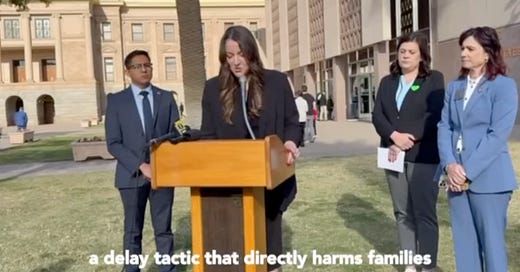

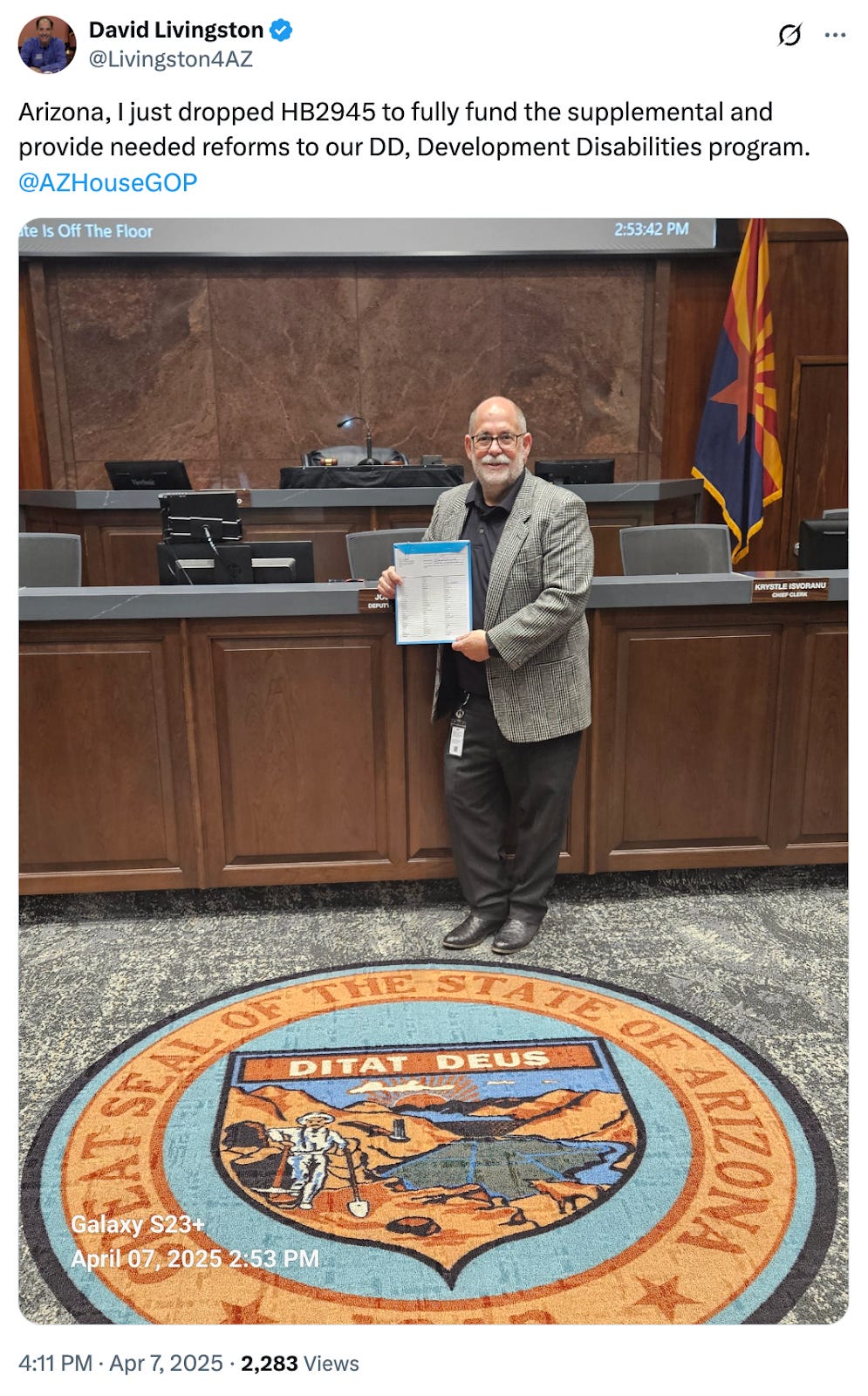
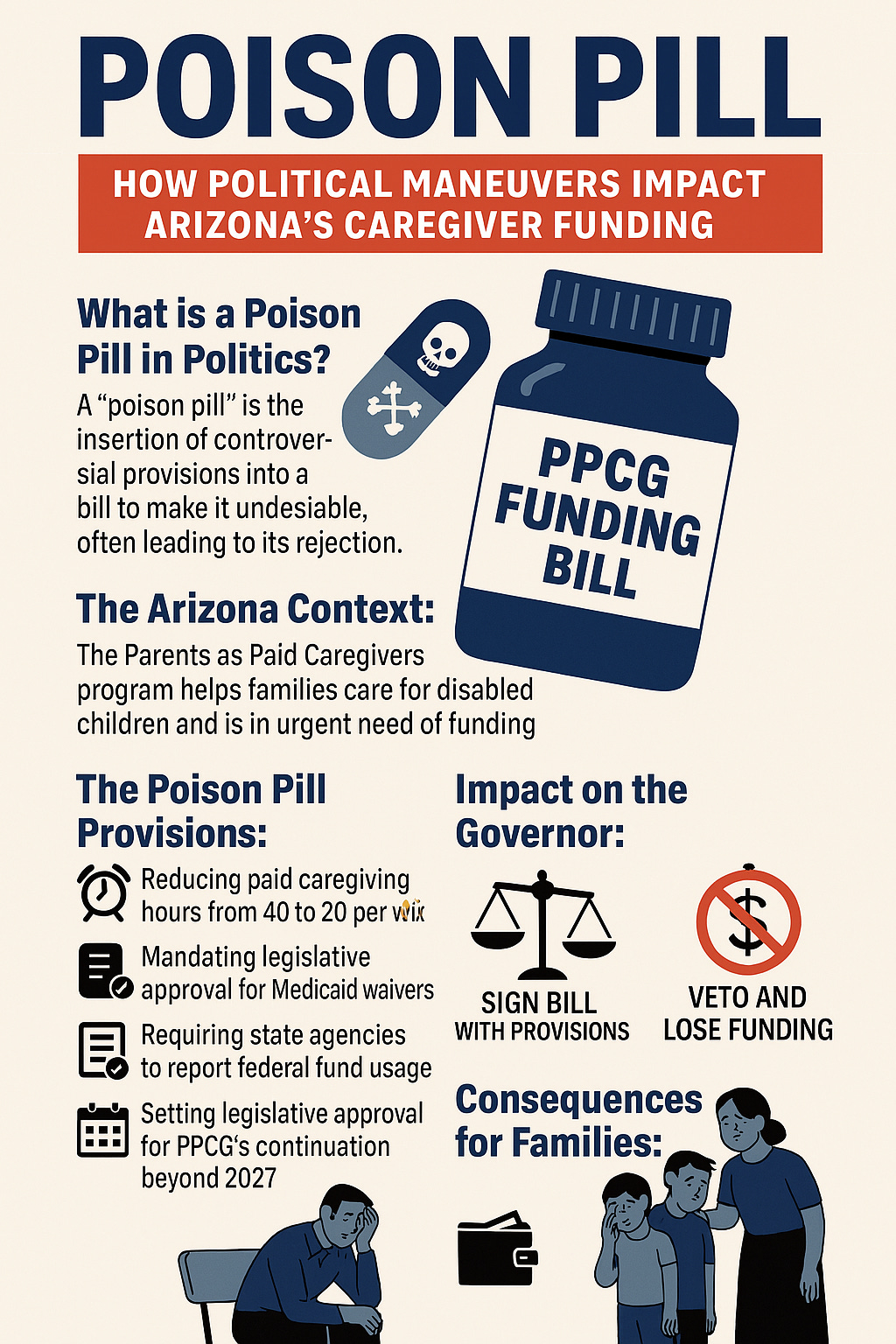
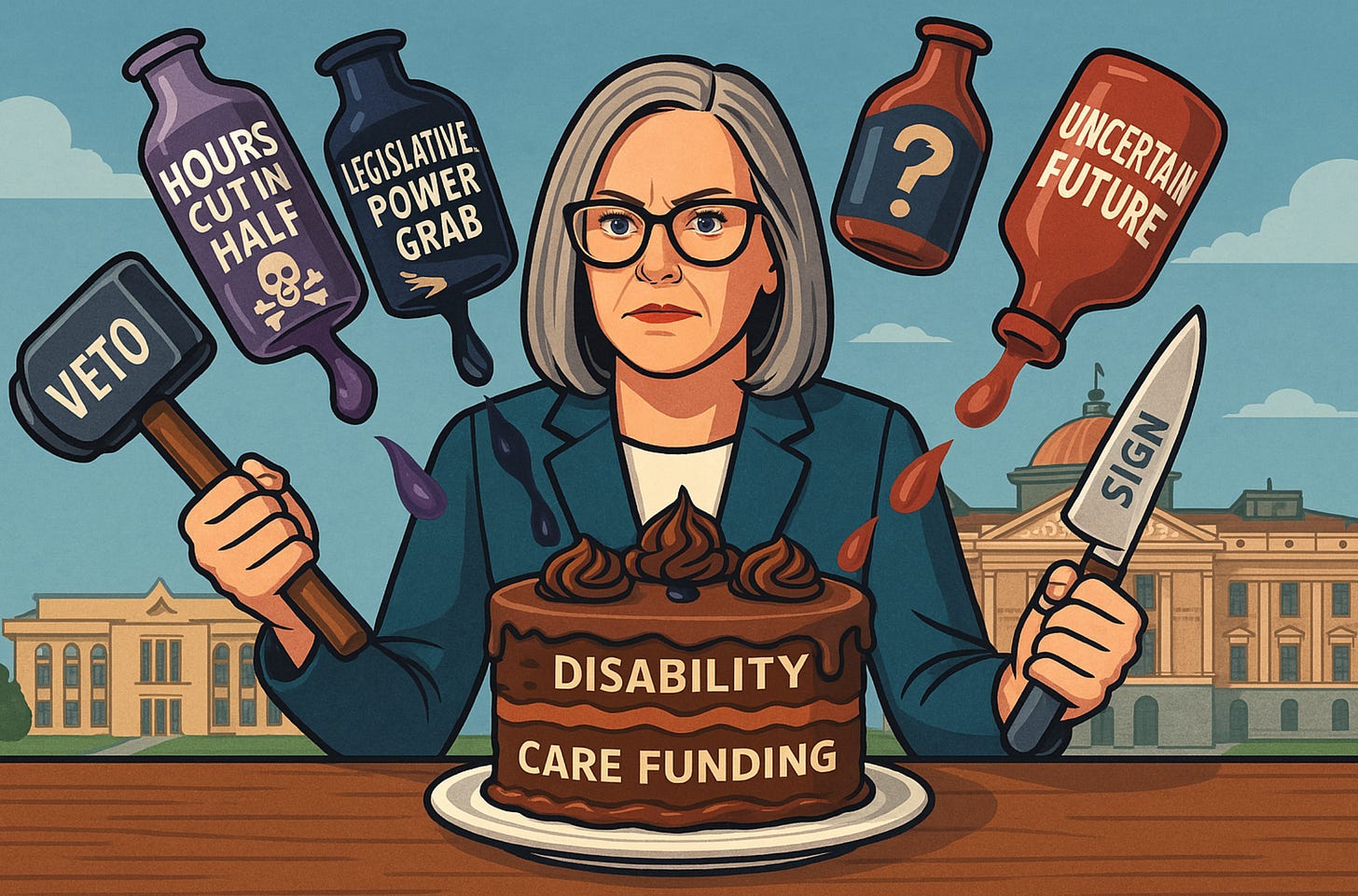
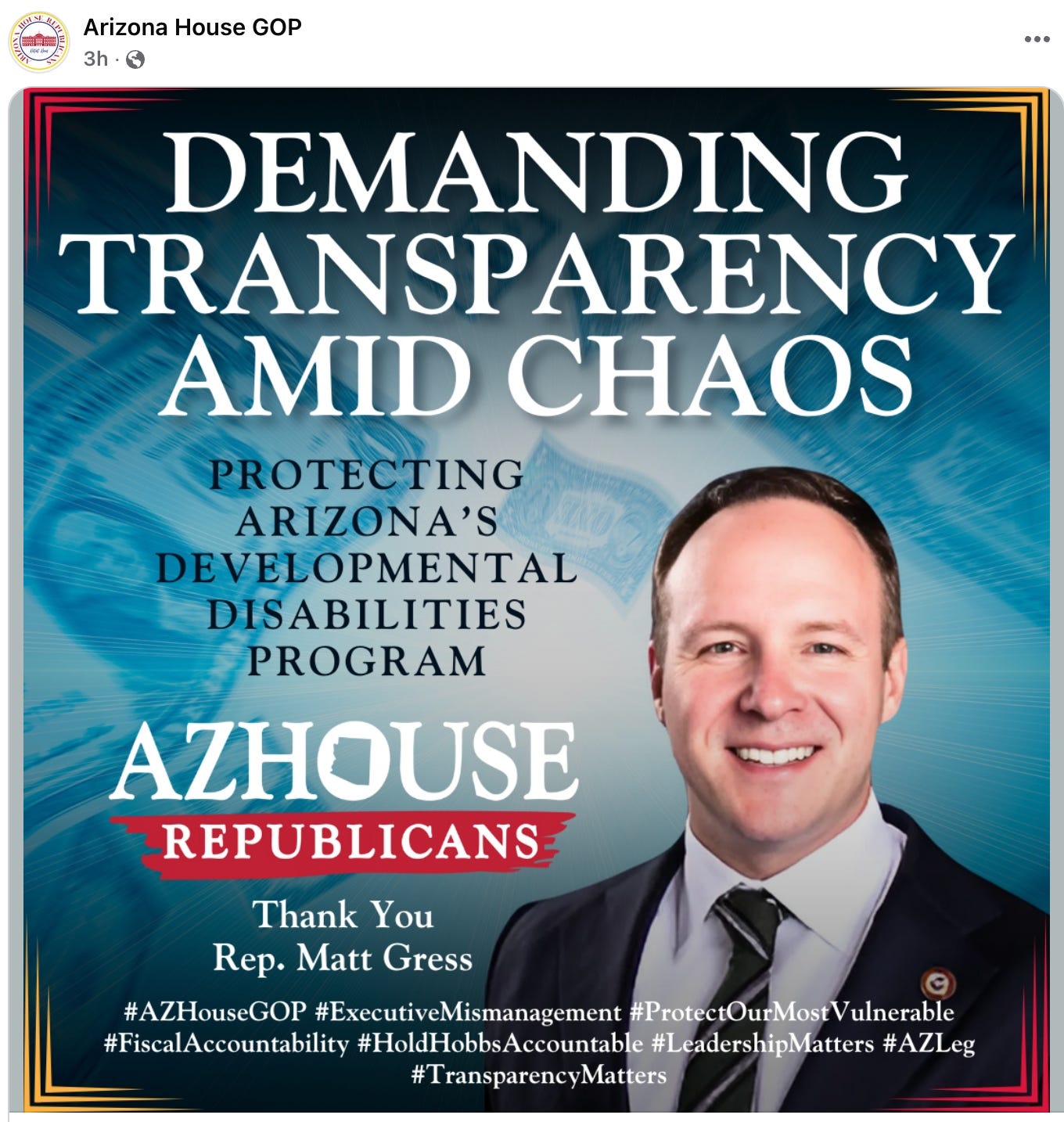

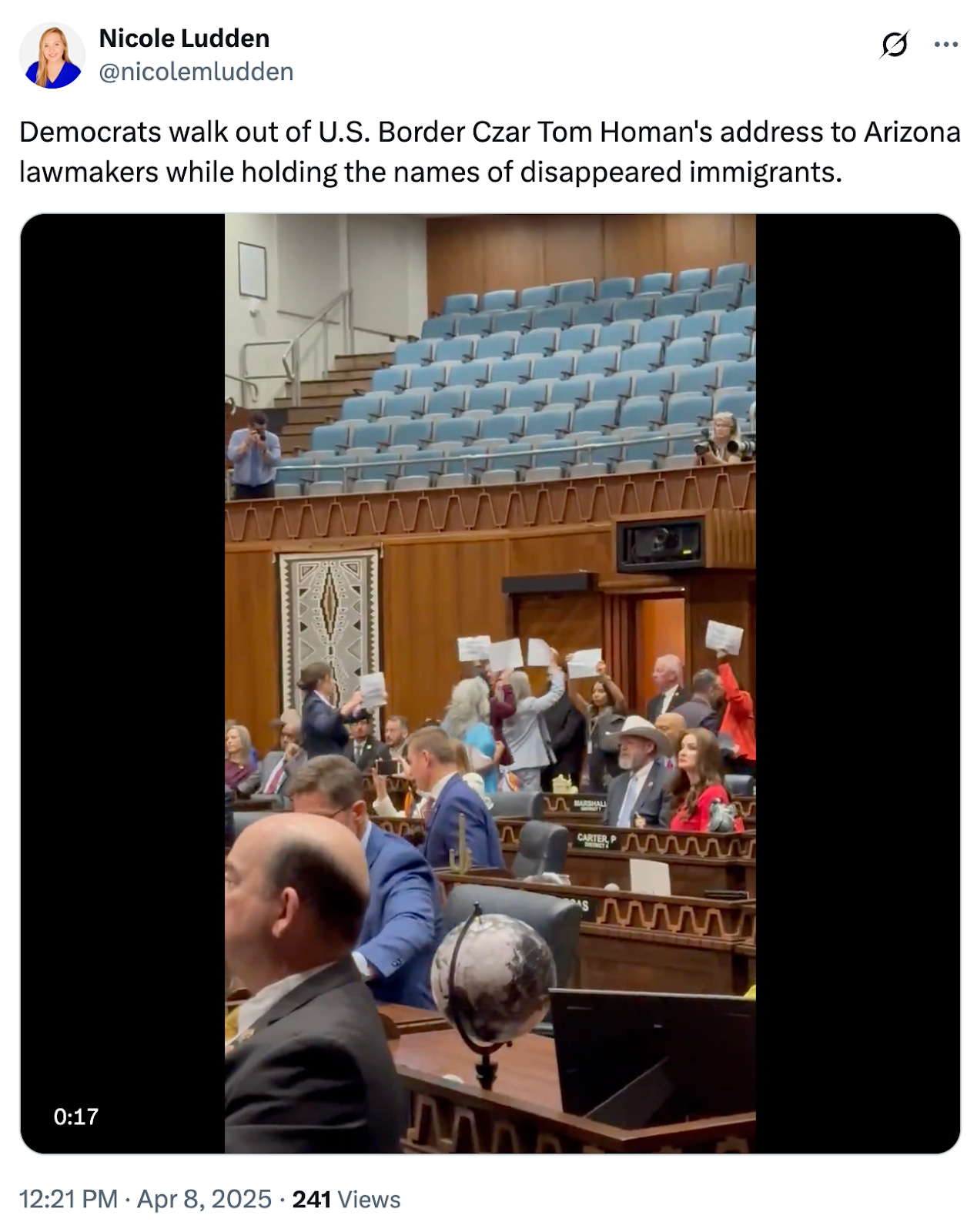


I called Schweikert’s office about 15 times in the last months calling him a coward for giving up his constitutional duties to the executive branch. Maybe mine, with others who called moved the needle? Please call Matt Gress, biggest hypocrite ever.